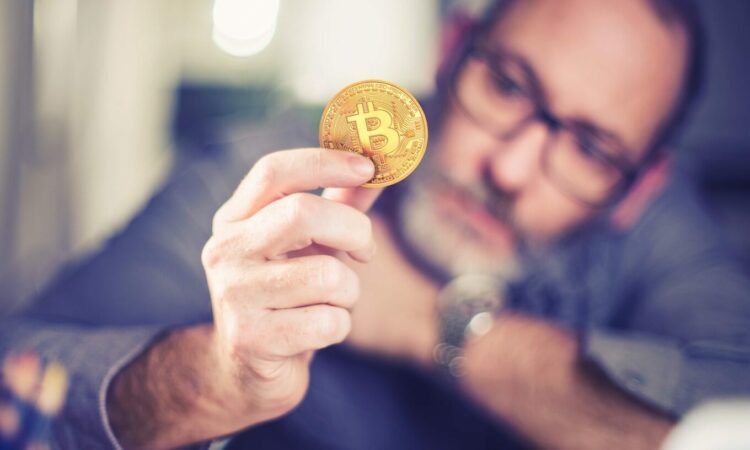
There are two undeniable facts about cryptocurrencies – they have made some people very rich and they have made some people very poor.
This is something investors should bear in mind before deciding to dabble in the world of cryptos, which have been surrounded by controversy almost from the outset.
Cryptocurrencies are a technical and financial innovation that offer major potential for the global economy.
But they are also being used for criminal purposes such as money laundering, fraud, and the online trade of illicit goods and services.
The big attraction for most investors is unquestionably the chance to get rich overnight.”
The ways criminals use cryptos is said to be evolving, and it is spreading to all forms of serious and organised crime.
Cryptocurrencies are digital payments that don’t rely on banks to verify transactions.
Their popularity has soared in recent years – particularly among the young. There are now thought to be more than 22,000 different cryptos in existence around the world, though less than 10,000 are active. There are also said to be upwards of 300 million users worldwide.
The big attraction for most investors is unquestionably the chance to get rich overnight if your chosen cryptocurrency becomes the next big thing. You have just to be lucky with your pick – and the saying about a needle in a haystack quickly comes to mind.
And there can also be a major downside when your crypto becomes unpopular or is involved in some scandal.
In the blink of an eye, any profits – and even your initial investment – can become worthless, and you are unlikely to have any comeback.
So let’s take a look at the first cryptocurrency, Bitcoin, which was founded in 2009 and remains dominant in the market today.
It was reportedly launched by a computer programmer or group of programmers under the pseudonym Satoshi Nakamoto, whose actual identity has never been verified.
A 2008 white paper originally revealed the blockchain system that would be the backbone of the crypto market. A blockchain is a digital ledger of transactions that is replicated and distributed across a network of computer systems to secure information.
There is no question the early Bitcoin buyers who have held on to their investments for the long game are the ones who have made the really big money.
The first transaction for dollars in 2009 saw a trade of 5,050 Bitcoin for just $5.02 (about £4.09 in today’s money). That works out at a bargain-basement price of $0.00099 per Bitcoin.
But the first real-world use was in 2010 when Laszlo Hanyecz paid 10,000 Bitcoin to have two pizzas delivered to him for about $25 (£20.34).
At the time of writing this article, the price was $24,683 (£20,089) – meaning those Bitcoin which changed hands for a total of just over $5 would now be worth a staggering $124 million (£100.9 million).
But the growth in value has not been a smooth passage as there have been many price setbacks over the years – Bitcoin’s fortunes have been a massive roller coaster.
Price manipulation?
Speculation is a big mover in the market, as is the frequent government action against companies involved in cryptocurrencies. There have also been many allegations of price manipulation by those with big holdings of Bitcoin, as dramatic movements in the value can defy logic.
The Bitcoin frenzy reached a peak in late 2021 as less-experienced investors poured into the market. The cryptocurrency reached its all-time high of $68,789 (£55,989) before slumping to less than $20,000 (£16,277).
Many investors were left with major losses instead of the expected easy profits when the price dived, as they had been drawn in by “experts” predicting the price would soar to $1m (£814,000).
Enthusiasts still hope this lofty valuation will be achieved one day – if Bitcoin becomes a global reserve currency, though many financial pundits doubt this can be achieved.
Bitcoin is frequently described as a “bubble” comparable to the Dutch tulip mania in the 1600s, and some market watchers predict its value could crash to nothing in the future.
No one knows for certain what the future holds for cryptocurrencies, but anyone thinking of investing in the market should be ready to strap themselves in for a bumpy ride on this particular investment roller coaster.
The world of NFTs
So that’s cryptocurrencies, but what about non-fungible tokens (NFTs)?
These digital assets have become popular with investors. They are unique cryptographic tokens that exist on a blockchain and cannot be replicated.
NFTs can represent digital or real-world items like artwork, property and even whisky.
“Tokenizing” real-world tangible assets makes buying, selling, and trading them more efficient, while reducing the probability of fraud.
Whisky NFTs are unique tokens representing collectible bottles of rare spirits held in storage. Owners are free to buy, sell, and trade their assets, but they can also burn – permanently destroy – the NFT token and claim the physical bottle.
They are said to bring a new level of transparency to the rare spirits market, eliminate the jurisdictional restrictions of political boundaries, and heavily reduce the risk of scams and frauds.
North-east finance expert suggests taking Warren Buffet’s advice on crypto






